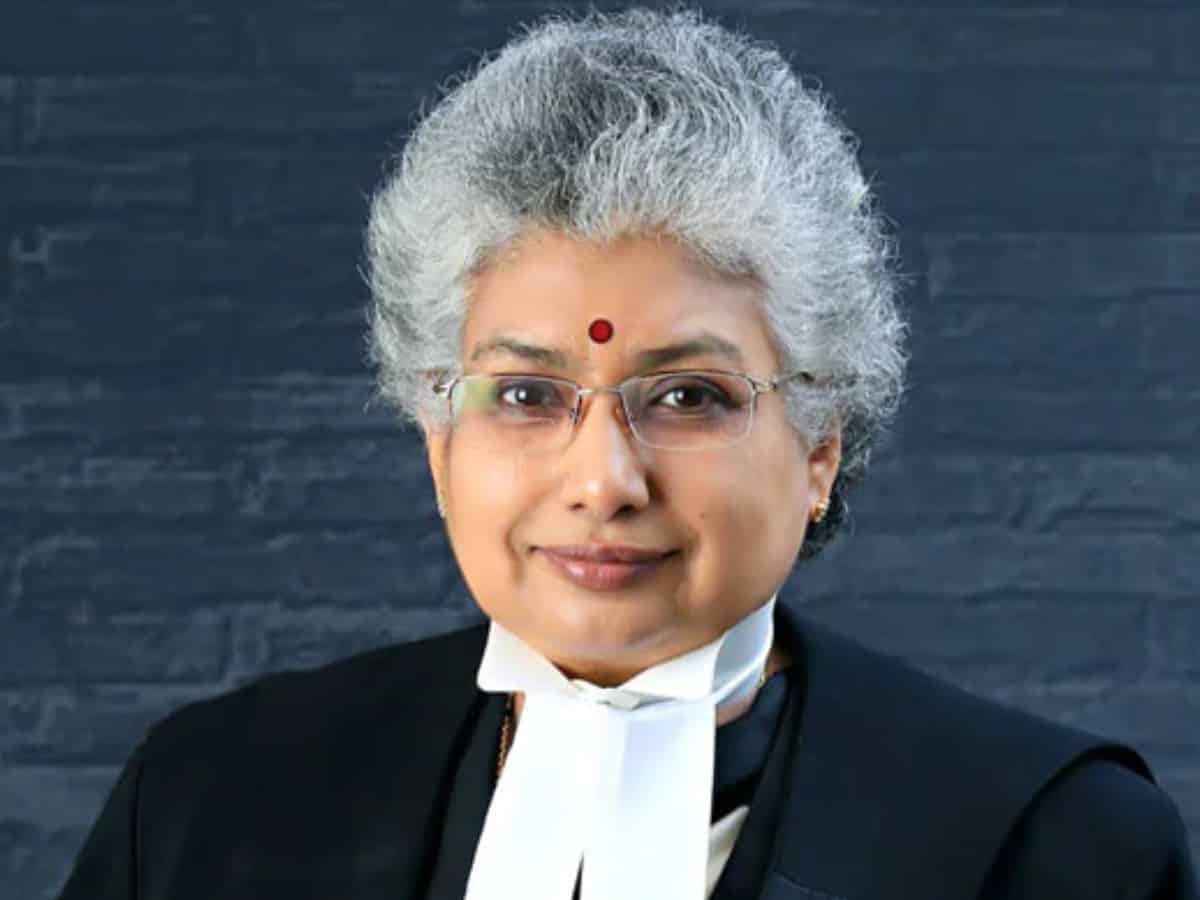
New Delhi: Supreme Court judge Justice B.V. Nagarathna — the lone woman on the five-judge bench, which upheld Centre’s 2016 decision to demonetise the Rs 1,000 and Rs 500 denomination notes – dissented with the view of four judges on demonetisation, saying that it was unlawful and vitiated.
Authoring a 124-page judgment, she said: “In view of the aforesaid conclusions, I am of the considered view that the impugned notification dated 8th November, 2016 issued under sub-section (2) of Section 26 of the Act (RBI Act) is unlawful. In the circumstances, the action of demonetisation of all currency notes of Rs 500 and Rs 1,000 is vitiated.”
She added that the Centre could not have exercised power under sub-section (2) of Section 26 of the RBI Act in the issuance of the gazette notification of November 8, 2016.
She declared that the demonetisation exercise was unlawful, since the proposal was initiated by the Centre and not by the central board of the Reserve Bank of India. Taking into consideration the communications of the government with the RBI, she said there was no independent application of mind by the bank.
“The use of the words/phrases such as ‘as desired’ by the Central government; government had recommended the withdrawal of the legal tender of existing Rs 500 and Rs 1,000 notes; recommendation has been ‘obtained’; etc., are self-explanatory. This demonstrates that there was no independent application of mind by the bank. Neither was there any time for the Bank to apply its mind to such a serious issue”, said Justice Nagarathna, adding that the entire exercise of demonetisation of all series of bank notes of Rs 500 and Rs 1,000 was carried out in 24 hours.
Justice Nagarathna noted that demonetisation could not have been carried out by issuing a notification as contemplated under sub-section (2) of Section 26 of the Act and that the Parliament does indeed have the competence to carry out demonetisation. She added that in the present case, the object and the purpose of issuance of an ordinance and thereafter, the enactment of the 2017 Act by the Parliament was, “in my view, to give a semblance of legality to the exercise of power”.
She said the Central government did not follow the procedure contemplated under law to give effect to its proposal for demonetisation. Justice Nagarathna further added that the recommendation did not originate from the bank under sub-section (2) of Section 26 of the Act, but was “obtained” from the RBI in the form of an opinion on the proposal for demonetisation submitted by the Centre.
“The objective of the Central government may have been sound, just and proper, but the manner in which the said objectives were achieved and the procedure followed for the same, in my view was not in accordance with law,” said Justice Nagarathna, adding that around 98 per cent of the value of the demonetised currency have been exchanged.
She emphasised that the measure has been regarded as unlawful only on a purely legalistic analysis of the relevant provisions of the Act and not on the objects of demonetisation.
“The opinion of the central board of the Bank ought to be an independent and frank opinion after a meaningful discussion by the central board of the bank which ought to be given its due weightage having regard to the ramifications it may have on the Indian economy and the citizens of India although it may not be binding on the Central government.”
Justice Nagarathna said the ordinance of 2016 and the Act of 2017 incorporating the terms of the notification on demonetisation are also unlawful. “I wish to observe that demonetisation was an initiative of the Central government, targeted to address disparate evils, plaguing the nation’s economy, including, practices of hoarding black money, counterfeiting, which in turn enable even greater evils, including terror funding, drug trafficking, emergence of a parallel economy, money laundering including Havala transactions. It is beyond the pale of doubt that the said measure, which was aimed at eliminating these depraved practices, was well-intentioned,” she said.
Justice Nagarathna said the provisions of the Act do not bar the Centre from proposing or initiating demonetisation, but “it could do so having regard to its plenary powers under Entry 36 of List I of the Seventh Schedule of the Constitution of India. However, it has to be done only by an Ordinance being issued by the President of India followed by an Act of Parliament or by plenary legislation through the Parliament. The Central Government cannot demonetise bank notes by issuance of a gazette notification as if it is exercising power under sub-section (2) of Section 26 of the Act”.



